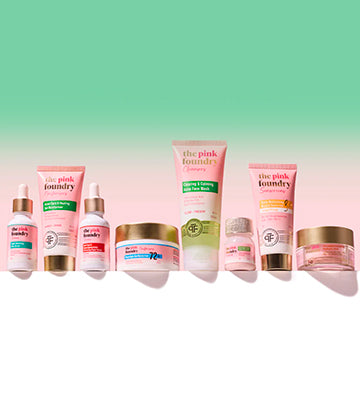Phenyl Trimethicone in skincare
Introduction
Phenyl trimethicone is a silicone that is an occlusive and conditioning agent, sealing up hydration to make the skin silky. It has higher viscosity and a better finish than some other silicones. Phenyl trimethicone has been safely used in cosmetic products for many years now. The Cosmetic Ingredient Review Expert Panel reconfirmed phenyl trimethicone as a safe ingredient in 2006. They looked at products with concentration levels ranging from 0.0075% to 36%.
What is phenyl trimethicone?
Phenyl trimethicone is an alternative name for polyphenylmethyl siloxane, which can be simply defined as a form of polysiloxane derivative that occurs naturally in silica or quartz/opal found in the earth's crusts. It is also white in colour, just like the physical appearance of silicon fluid.
What does phenyl trimethicone do in skincare products?
Phenyl trimethicone, when used in skincare products, helps to reduce the tendency of finished formulations to foam when shaken. By making skin smooth and slippery, it slows down moisture evaporation from the surface.
Phenyl trimethicone benefits in skincare
Phenyl trimethicone benefits are numerous when used in skincare products:
- Protects skin: It forms a transparent protective film over skin that holds back moisture and permits vital gases (e.g., oxygen and nitrogen) to pass through.
- Conditions skin: It acts as a conditioning agent and keeps skin moisturised and soft. It is mostly beneficial for dry skin.
- Reduces irritation: The protective covering it creates reduces inflammation and redness in skin by avoiding harmful agents.
- Prevents foam formation: It is an anti-foaming agent that prevents transportation-induced foam formation, thereby enhancing product stability.
- Enhances product spreadability: It improves product spreadability on skin surfaces, allowing for even applications every time the skin is worked upon.
- Versatile use: It can be found in many types of skincare products due to its versatile nature in ingredients.
Precautions while using phenyl trimethicone
Many precautions need to be considered by people using products that contain phenyl trimethicone. Here are some of them:
- Patch test: Before using a new product containing phenyl trimethicone, do a patch test to ensure no reaction occurs. Apply the product on a small area for 24 hours in order to check if it irritates or causes any allergic reactions.
- Skin sensitivity: If you have sensitive skin or acne-prone skin, observe its response to the product. However, this is not comedogenic as implied by many consumers and can vary depending on an individual's sensitivity.
- Avoid damaged/broken skin: Unless recommended by a dermatologist, these products should not come in contact with open wounds.
- Eye contact: You should avoid applying such substances near your eyes. In case of accidental occurrence, wash well with water around that area.
- Consult with a dermatologist: Talk to your dermatologist before using new products containing phenyl trimethicone if you have underlying skin concerns or existing conditions.
- Storage: Always follow the directions regarding storage of creams, lotions, etc., which contain phenyl trimethicone. It normally should be kept in cool, dry places away from direct sunlight so that its effectiveness is not compromised in any way.
Conclusion
Phenyl trimethicone belongs to a class of chemicals known as siloxanes, derived from silica, which are natural elements found in opal and quartz. Siloxanes are characterised by having silicon monomers while carrying various substituents, including those like phenyl groups, among others. As a skin conditioning agent-occlusive, phenyl trimethicone is used in skincare products and considered one of the most popular ingredients.

